How two strangers set up Dropbox and made billions
- Published
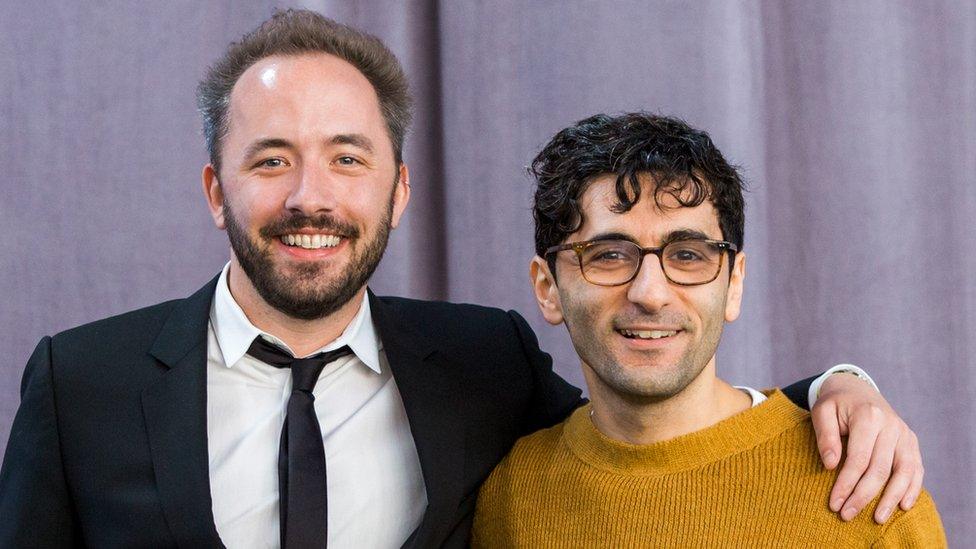
Drew Houston (left) had never met Arash Ferdowsi before they launched Dropbox together
The BBC's weekly The Boss series profiles a different business leader from around the world. This week we spoke to Drew Houston, founder and chief executive of US cloud storage company Dropbox.
Drew Houston says it felt as if he had just two weeks to find a complete stranger to marry.
Back in 2007 the then 24-year-old was desperate to secure funding to get his idea for a cloud storage business up and running.
One of Silicon Valley's most prestigious backers of new start-ups - Y Combinator - were prepared to take a gamble on Mr Houston and Dropbox, but there was one catch - they demanded that he get a business partner.
Their argument is that new companies are far more likely to succeed if they have more than one founder, more than one person to make decisions and cope with the workload.
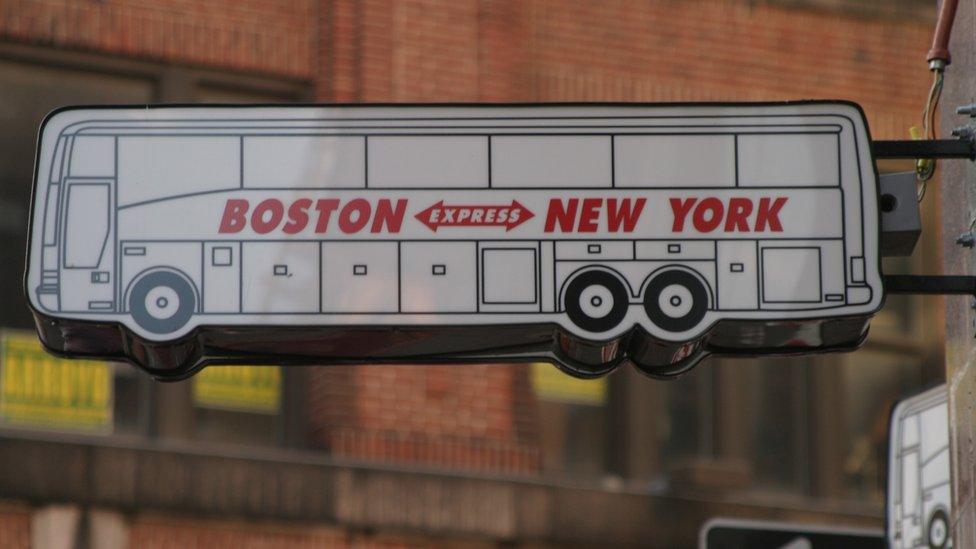
Mr Houston came up for the idea for Dropbox while on a bus between Boston and New York
Mr Houston's problem was that he was a one man band at the time, and for various reasons none of his friends were able to join the business. So he had just two weeks to find a complete stranger to become his co-founder.
"It was like getting an email from the dean of admissions to your favourite college, but the application deadline was in the next couple of weeks, and you need to get married in that time, not just find a date," he says.
Moving very quickly Mr Houston managed - after a chat lasting just two hours - to persuade a 22-year-old student called Arash Ferdowsi to quit university and join him. Mr Ferdowsi was a friend of a friend, but he and Mr Houston had never met before.
That was 11 years ago. Fast forward to today and San Francisco-based Dropbox is valued at more than $12bn (£9bn). while Mr Houston's net worth is calculated at $3bn, and Mr Ferdowsi's at $1.3bn.
Not bad at all for a company that many said would never be successful, and one that Apple's late Steve Jobs is widely reported to have said he would destroy.
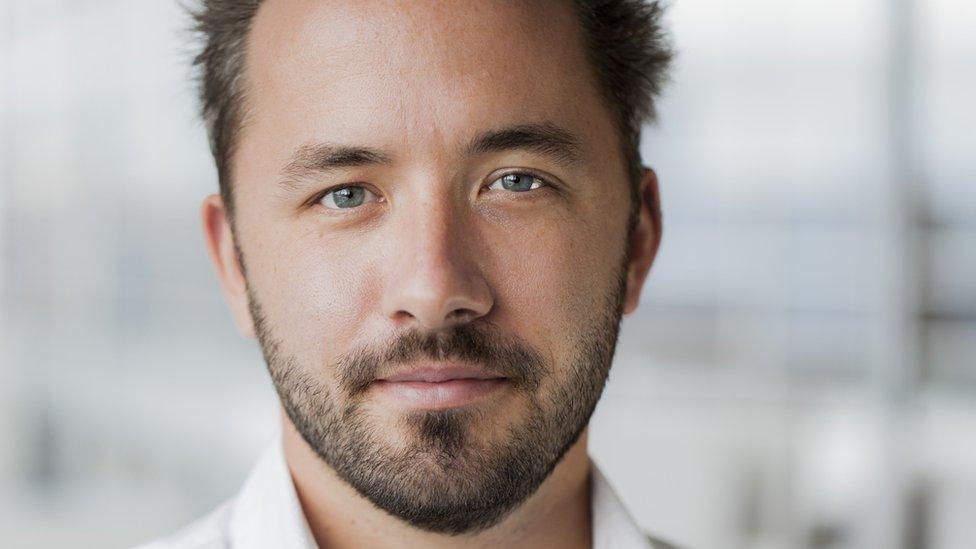
Drew Houston is worth more than $3bn
Inspiration for a new business can come from anywhere, and for Mr Houston it was on a bus between Boston and New York in late 2006.
As a recent computer science graduate from the Massachusetts Institute of Technology [MIT) he was intending to use the six or so hours long journey to work on some earlier business ideas. But as he sat down in his seat, Mr Houston realised that he had forgotten the memory stick that contained all the files.
"I was so frustrated because I felt like this kept happening," he says. "I never wanted to have the problem again, so having nothing else to do... I started writing some code [to find a solution], having no idea what it would become."
What Mr Houston came up with was the idea for Dropbox - remote storage that users can access online wherever they may be. Within two weeks he had created the prototype, and come up with the name.
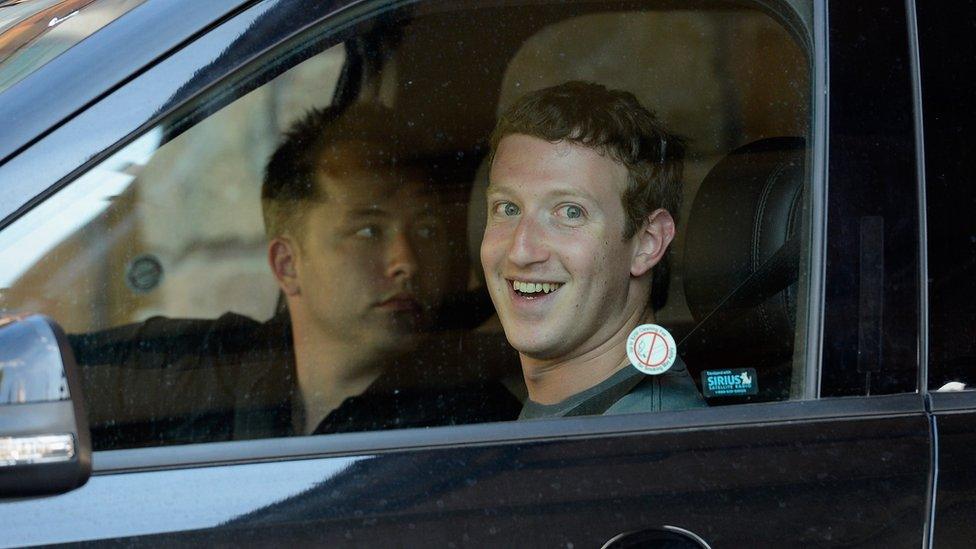
Mr Houston (left) is a friend of Facebook boss Mark Zuckerberg
Just a few months later Y Combinator expressed an interest, and Mr Houston went back to MIT to meet Mr Ferdowsi, who was studying electrical engineering and computer science at his old university.
Mr Houston, who is now 35, says: "We met in the student centre for an hour or two, then Arash dropped out of school the next week.
"In retrospect this was pretty crazy... I'm sure his parents had a different plan for him, one that involved finishing college.
"But he was really excited to do it. And I don't know if either of us knew quite what we were getting into."
Moving into Y Combinator's base in Silicon Valley, Dropbox launched in 2008.
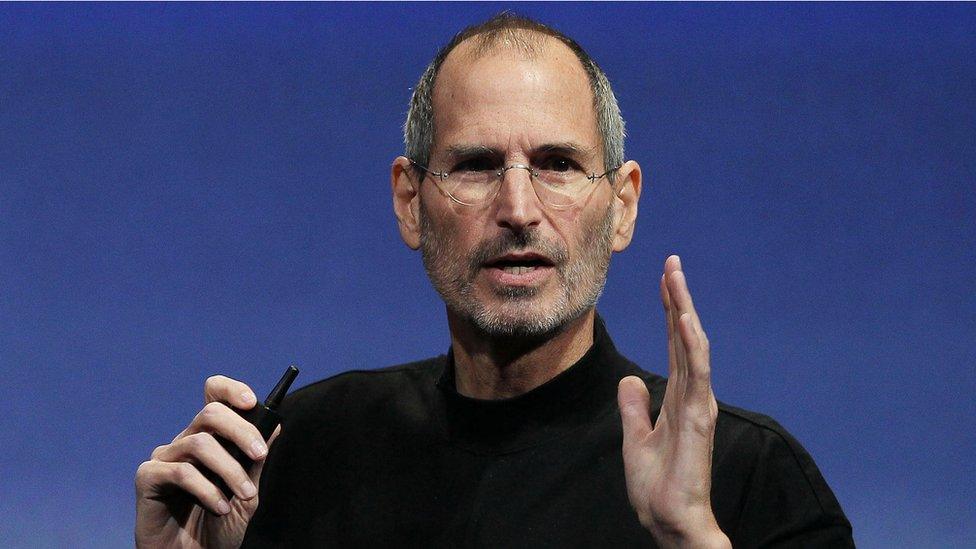
The late Steve Jobs was said to have been annoyed that he couldn't buy Dropbox
To attract its first customers Dropbox made promotional videos that it put up on discussion websites such as Reddit and Slashdot. The aim was to get technology sector influencers to start using the service in the hope that they would speak positively about the product, and user numbers would then grow thanks to this word of mouth.
This indeed proved successful, and from 5,000 users on a waiting list, within a few days Dropbox had 75,000 sign ups. Then it went from 100,000 users to 200,000 users "in something like 10 days".

More The Boss features, which every week profile a different business leader from around the world:

User numbers rocketed even further and faster when Mr Houston and his team came up with an incentivised referral scheme. This offered existing Dropbox customers more free storage space if they could get a friend to sign up. The other person would also get more free space, and so on.
It attracted millions of new customers, and caught the attention of the late Steve Jobs who made an offer for the business in 2011.
While Mr Houston declined to talk about this, in numerous previous interviews he has said that Jobs didn't take it well when he turned down the offer. Website Business Insider last year quoted Mr Houston saying that Jobs had threatened to "kill" Dropbox following the rejection., external
Apple launched its own cloud storage service later in 2011, iCloud, but this didn't hold back Dropbox's growth.
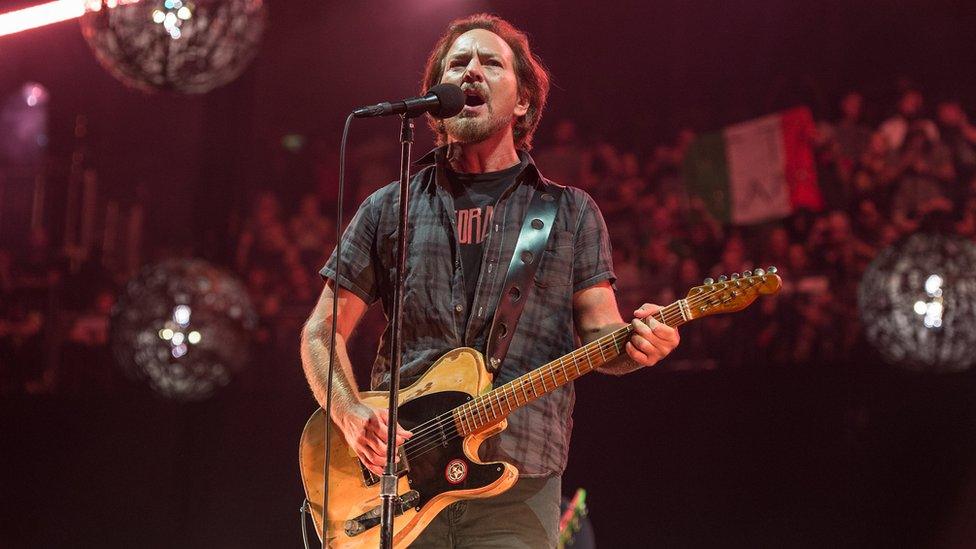
Mr Houston is also a friend of Pearl Jam's Eddie Vedder, who is a Dropbox investor
Today Dropbox has more than 500 million registered users, of whom 11.5 million pay an annual subscription fee for more storage than you get for free. This includes more than 300,000 paying business customers.
The company floated on the Nasdaq index earlier this year, and its market capitalisation - the total value of all its shares - currently stands at more than $12bn. Its annual revenues exceed $1bn, and it has a global workforce of more than 2,000 people.
Technology analyst Ben Wood of research group CCS Insight says there are numerous reasons for Dropbox's success, such as its overall ease of use and "very importantly the fact it allows people to easily save and share photos, videos, and other big files that email servers are still unable to cope with".
Mr Houston says that he and Mr Ferdowsi, who remains on the senior management team, continue to work well together.
Regarding his specific role as chief executive, Mr Houston says his current main focus is making sure that staff ignore the success of the recent share flotation, and instead "stay focused on why we are here - making customers happy".
Follow The Boss series editor Will Smale on Twitter., external